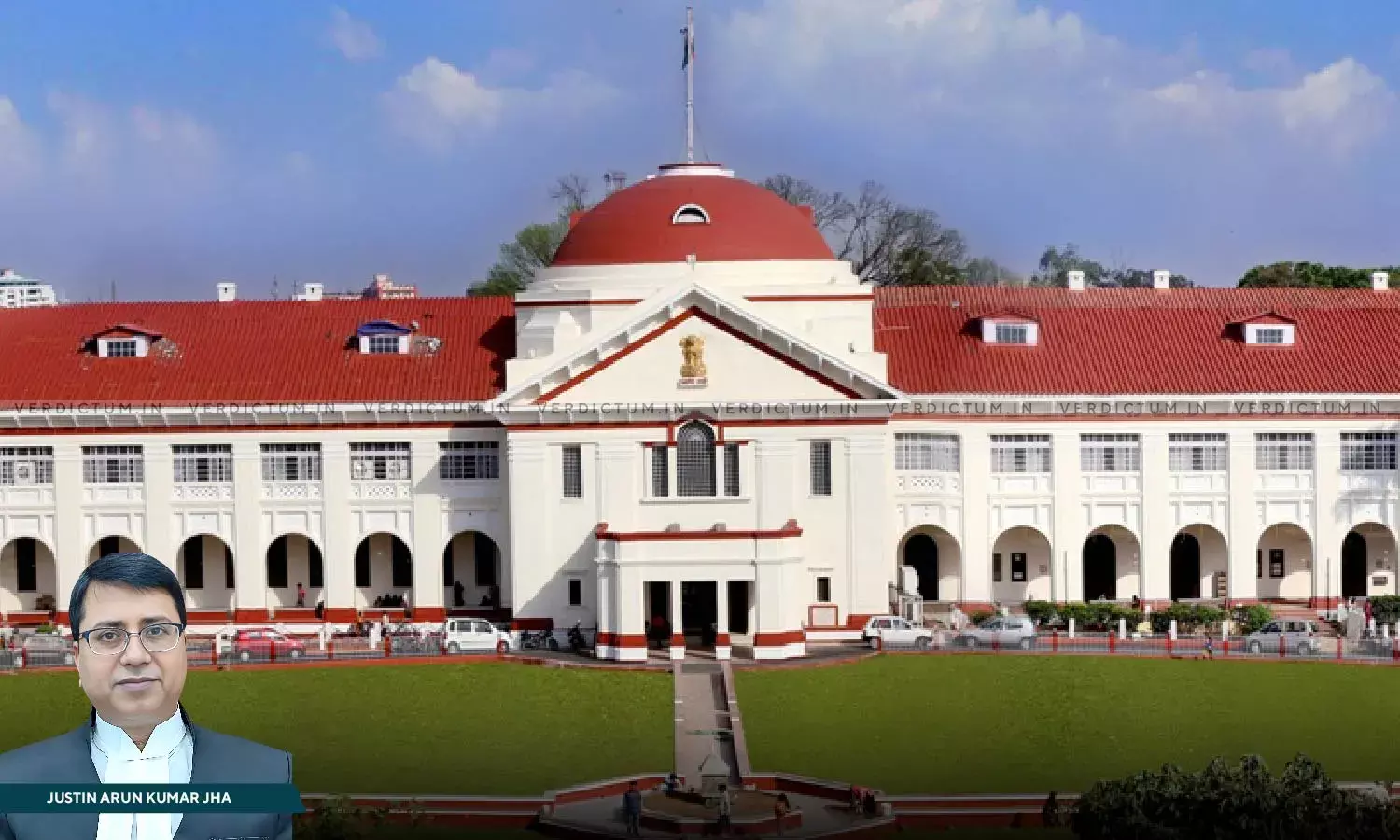If Statute Provides For A Thing To Be Done In Particular Manner, It Must Be Done In That Manner Or Not At All: Patna High Court
The Patna High Court said that even if the Magistrate would not be empowered to take cognizance in absence of pre-cognizance hearing, the same would not merely be an irregularity.

Justice Arun Kumar Jha, Patna High Court
The Patna High Court reiterated that if a statute provides for a thing to be done in a particular manner, it must be done in that manner or not at all.
The Court reiterated thus in a Criminal Revision Petition seeking setting aside of the Order passed by the Sessions Judge-cum-Special Judge.
A Single Bench of Justice Arun Kumar Jha observed, “If a statute provides for a thing to be done in a particular manner, it must be done in that manner or not at all. In this regard, a reference could be made to the decision of the Hon’ble Supreme Court in the case of Meera Sahni vs. Lieutenant Governor of Delhi and Ors., (2008).”
The Bench said that even if the Magistrate would not be empowered to take cognizance in absence of pre-cognizance hearing, the same would not merely be an irregularity.
Senior Advocate Madhav Khurana represented the Petitioner, while Special Counsel (Advocate) Zoheb Hossain represented the Respondents.
Brief Facts
The Respondent-Enforcement Directorate (ED) registered an ECIR (Enforcement Case Information Report) on the strength of two FIRs against one Sanjeev Hans and others wherein it was alleged that Sanjeev Hans while in public service, amassed huge assets, acquired with the help of one Gulab Yadav and Harloveleen Kaur. The Petitioner was neither named in FIRs, nor in ECIR or Addendum ECIR. However, he was arrested and taken into custody. He challenged the grounds of arrest and remand to judicial custody by filed a plea which was pending before the Court.
During the investigation, the ED filed a Prosecution Complaint under Section 44 (1) (b) of the Prevention of Money Laundering Act, 2002 (PMLA) before the Special Court, arraigning 8 persons/entities as accused including the Petitioner. Two supplementary prosecution complaints (SPCs) were also filed respectively against the Petitioner and remaining persons. The Special Court took cognizance and issued process to all the accused. Hence, the case was before the High Court.
Reasoning
The High Court in the above regard, noted, “Section 210 of BNSS empowers the Magistrate to take cognizance of any offence under the circumstances enumerated thereunder. Section 506 talks about cases in which cognizance has been taken, but the Magistrate is not empowered by law to do so. But Section 223 of BNSS which has been introduced in BNSS along with its proviso in its new 'Avatar' of corresponding provision under Section 200 of Cr.P.C., has incorporated one of the principles of natural justice which mandates that a Magistrate prior to taking cognizance must hear the other side.”
The Court added that if such right is taken away on the ground that not affording an opportunity of hearing is merely an irregularity, the same would amount to acting against the statutory mandate and legislative intent.
“Therefore, I find no merit in the contention of the learned special counsel for the Directorate of Enforcement that the petitioner failed to demonstrate or show that any prejudice was caused to him due to not affording an opportunity of pre cognizance hearing”, it said.
The Court remarked that the contention of the Special Counsel for the ED that the Petitioner has been given ample opportunity of hearing as he was repeatedly summoned and examined under Section 50 of PMLA, confronted with incriminating material and afforded adequate opportunity to explain his position during investigation, would not cut much ice as the legislature in its wisdom provided for a pre-cognizance hearing and if the same was not given to the petitioner, no amount of prior opportunity could cure such defect.
“Similarly, the contention of learned special counsel for the Directorate of Enforcement that the petitioner would have a right of hearing at the stage of framing of charges, is also not sustainable in the eyes of law. If the initial proceeding stood vitiated, being against the provision of law, the subsequent curative measures could not put a cloak of legality on subsequent proceedings”, it observed.
Conclusion
The Court held that Section 223 of the Bharatiya Nagarik Suraksha Sanhita, 2023 (BNSS) will apply to the present complaint and therefore, proviso to Section 223 of BNSS mandatorily provides for an opportunity of hearing to an accused before cognizance could be taken against him, which means no cognizance of an offence shall be taken by the Magistrate without giving the accused of an opportunity of being heard and admittedly, no opportunity has been given by the Special Court to the Petitioner before taking cognizance of an offence.
“Therefore, I am of the considered opinion that the impugned order dated 08.01.2025 passed by the learned Special Court in Special Trial No. (PMLA) 10/2024 suffers from infirmity and, hence, the same is set aside. The matter is remanded to the learned Special Judge, PMLA, Patna for taking decision afresh in accordance with law after hearing the petitioner in terms of Section 223(1) of BNSS within a reasonable time”, it concluded.
Accordingly, the High Court allowed the Revision Petition and set aside the impugned Order.
Cause Title- Pushpraj Bajaj v. The Union of India & Ors. (Case Number: CRIMINAL REVISION No.685 of 2025)
Appearance:
Petitioner: Senior Advocate Madhav Khurana, Advocates Samarth K. Luthra, Harsh Singh, and Abhijeet.
Respondents: Special Counsel Zoheb Hossain, Retainer Counsel Tuhin Shankar, SPP Prabhat Kumar Singh, Advocate Pranjal Tripathi, and LC Vishal Kumar Singh.


